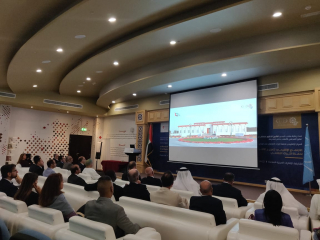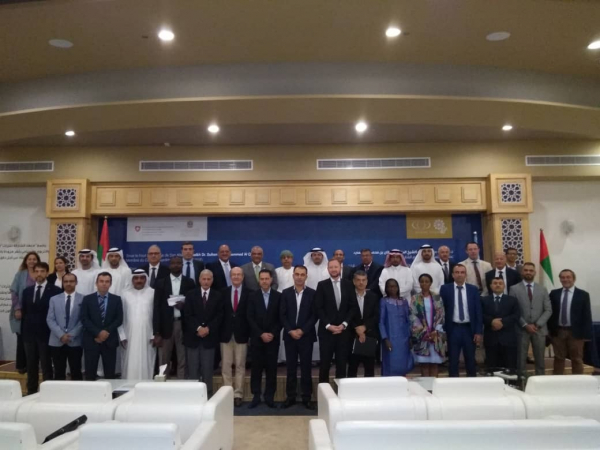On 24 October, the ICCROM-ATHAR Regional Conservation Centre held a Regional Meeting on “Enhancing institutional and Legislative Frameworks for the Protection of Cultural Heritage." The meeting was organized by ICCROM-Sharjah, with support from the Swiss government and the Ministry of Culture and Knowledge Development in the UAE. Participants from 21 countries discussed the significance of this initiative aimed at preserving cultural heritage and disseminating it to future generations.
The meeting praised the role of His Highness Sheikh Dr Sultan bin Mohammed Al Qasimi, Member of the Supreme Council and Ruler of Sharjah, in supporting cultural heritage and for the development of programmes and mechanisms that contribute to its preservation, including UAE initiatives to preserve cultural heritage in the Arab World.
Dr. Zaki Aslan, Director of the Regional Center for Cultural Heritage Conservation in the Arab World (ICCROM-Sharjah) commented as follows: “This meeting reflects ICCROM-Sharjah's objectives in enhancing the regional and international cooperation of all parties concerned with the protection of cultural heritage and in devising mechanisms that ensure the safeguard of heritage resources.” Aslan underlined the importance of the meeting, which discussed strategic directions for the protection of cultural heritage against deliberate destruction and illegal trafficking.
The meeting tackled approaches for developing scientific and specialized capacities, and stressed the importance of establishing comprehensive national databases for museum collections. It further called to modernize legislation in line with international conventions and strengthen national policies to preserve cultural property.
The participants, who came from 21 countries, discussed cultural policies and administrative and legal frameworks, and their effectiveness in protecting cultural heritage from deliberate destruction, as well as challenges facing law enforcement. They reviewed legislative tools recently issued in Egypt, Jordan, Oman, Palestine, Saudi Arabia, and UAE, highlighting their experience in protecting cultural and urban heritage.
International conventions on cultural property were discussed, as well as recent UN Security Council resolutions, and the obstacles facing their implementation. Participants further addressed issues of capacity building in judicial proceedings for repatriation of looted or illegally exported artifacts, inventorying and documentation of museum collections as well as immovable heritage.
Aiming to form a working group to formulate and follow up on viable practical procedures, this meeting saw the participation of international organizations, heritage departments officials and representatives of heritage institutions, legal experts, and representatives of regional and international organizations involved in protecting cultural heritage and fighting illicit trafficking. Institutions represented included UNESCO, Unidroit, ISESCO, and Interpol.
Member States represented: Bahrain, Belgium, Benin, Cote d’Ivoire, Egypt, France, Iraq, Jordan, Lebanon, Libya, Mauritania, Oman, Saudi Arabia, Senegal, Sudan, Switzerland, Syria, Tunisia, United Arab Emirates, Yemen.
Non-Member State: Palestine.


